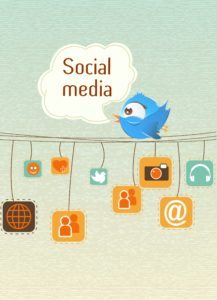Quick links, bringing you great articles on writing from all over the web.
Roz Morris, owner of Nail Your Novel, reaches out to people who review books with a plea that they open their minds a little towards reviewing self-publishing titles. I can understand the reluctance of book reviewers, there are a lot of self-published books that look, well, self-published. A lot. But, there are also a lot of self-publishing authors who do it right by hiring the correct people so their title is a professional offering and they are growing. Thoughts?
~ * ~
A plea for reviewers – can we open up a dialogue about self-published books?
by Roz Morris
 So I find a lovely-looking review blog. The posts are thoughtful, fair and seriously considered. I look up the review policy and … it says ‘no self-published books’.
So I find a lovely-looking review blog. The posts are thoughtful, fair and seriously considered. I look up the review policy and … it says ‘no self-published books’.
Today I want to open a dialogue with reviewers. If you have that policy, might you be persuaded to change it? Or to approach the problem in a different way?
I used the word ‘problem’. Because I appreciate – very well – that in making this policy you are trying to tackle a major problem. Your time as a reviewer is precious – and let me say your efforts are enormously appreciated by readers and authors alike. You get pitches for many more books than you can read and you need a way to fillet out the ones that are seriously worth your reading hours. A blanket ban is a way to fend off a lot of substandard material and save you many unpleasant conversations. And traditional publishing implies a certain benchmark of competence.
Competence. That’s probably the heart of the matter. There are good self-published books, of course, but how can I help you sort them from the bad and the fug-ugly?
Read the full post on Nail Your Novel

 by
by  Please welcome
Please welcome  Ah, distraction. The bane of our modern existence. Face it—we are going to be deluged with distractions every waking moment of the day. Unless you’ve found a way to live in a bubble or at the top of a mountain, deep in a cave, you probably are going to have some distractions. Even then, that water dripping from the ceiling in a steady rhythm is going to start distracting us.
Ah, distraction. The bane of our modern existence. Face it—we are going to be deluged with distractions every waking moment of the day. Unless you’ve found a way to live in a bubble or at the top of a mountain, deep in a cave, you probably are going to have some distractions. Even then, that water dripping from the ceiling in a steady rhythm is going to start distracting us. by Bryan Hutchinson
by Bryan Hutchinson Happy Saturday, everyone! I’m a little swamped right now, so instead of our usual thesaurus entry, I’m reposting an old favorite. It’s the first in a series of posts that explore different reasons why I stopped reading certain books. This is really helpful information for us to know as authors so we don’t make the same mistakes in our own books.
Happy Saturday, everyone! I’m a little swamped right now, so instead of our usual thesaurus entry, I’m reposting an old favorite. It’s the first in a series of posts that explore different reasons why I stopped reading certain books. This is really helpful information for us to know as authors so we don’t make the same mistakes in our own books.  My debut novel,
My debut novel,  Hi all! Julie here. Recently I blogged about
Hi all! Julie here. Recently I blogged about  As a literary agent in major trade publishing at the Trident Media Group literary agency, I often have to explain the elements of a good query letter to new clients. This article is intended as a description of what goes into a good query letter, for new authors unfamiliar with what literary agents and editors are looking for in a query letter intended the book-publishing world. For a writer who might be currently querying literary agents, or even contemplating that process, this might be interesting reading. Considering the high rejection rate in the book publishing industry for writers trying to become debut authors, this article will hopefully be enlightening for the countless writers who are experiencing rejection due to a poorly-constructed query letter.
As a literary agent in major trade publishing at the Trident Media Group literary agency, I often have to explain the elements of a good query letter to new clients. This article is intended as a description of what goes into a good query letter, for new authors unfamiliar with what literary agents and editors are looking for in a query letter intended the book-publishing world. For a writer who might be currently querying literary agents, or even contemplating that process, this might be interesting reading. Considering the high rejection rate in the book publishing industry for writers trying to become debut authors, this article will hopefully be enlightening for the countless writers who are experiencing rejection due to a poorly-constructed query letter. We discussed social media groups during
We discussed social media groups during  By
By by
by When I was first signing a book contract in 2008, I remember that the industry generally scoffed at writers worried about copyright issues. Some writers wondered if they should register a copyright on their manuscripts before submitting them to agents and publishers. There was even a line of thinking that authors could simply mail their manuscripts to themselves to acquire a ‘poor man’s copyright’ through the postal service.
When I was first signing a book contract in 2008, I remember that the industry generally scoffed at writers worried about copyright issues. Some writers wondered if they should register a copyright on their manuscripts before submitting them to agents and publishers. There was even a line of thinking that authors could simply mail their manuscripts to themselves to acquire a ‘poor man’s copyright’ through the postal service. I’ve never been a big fan of the writing admonition to Kill your darlings. It’s been a virtual axiom among writers for decades. Yet it seems to me about as useful as Destroy your delight and as cold-hearted as Drown your puppies.
I’ve never been a big fan of the writing admonition to Kill your darlings. It’s been a virtual axiom among writers for decades. Yet it seems to me about as useful as Destroy your delight and as cold-hearted as Drown your puppies.